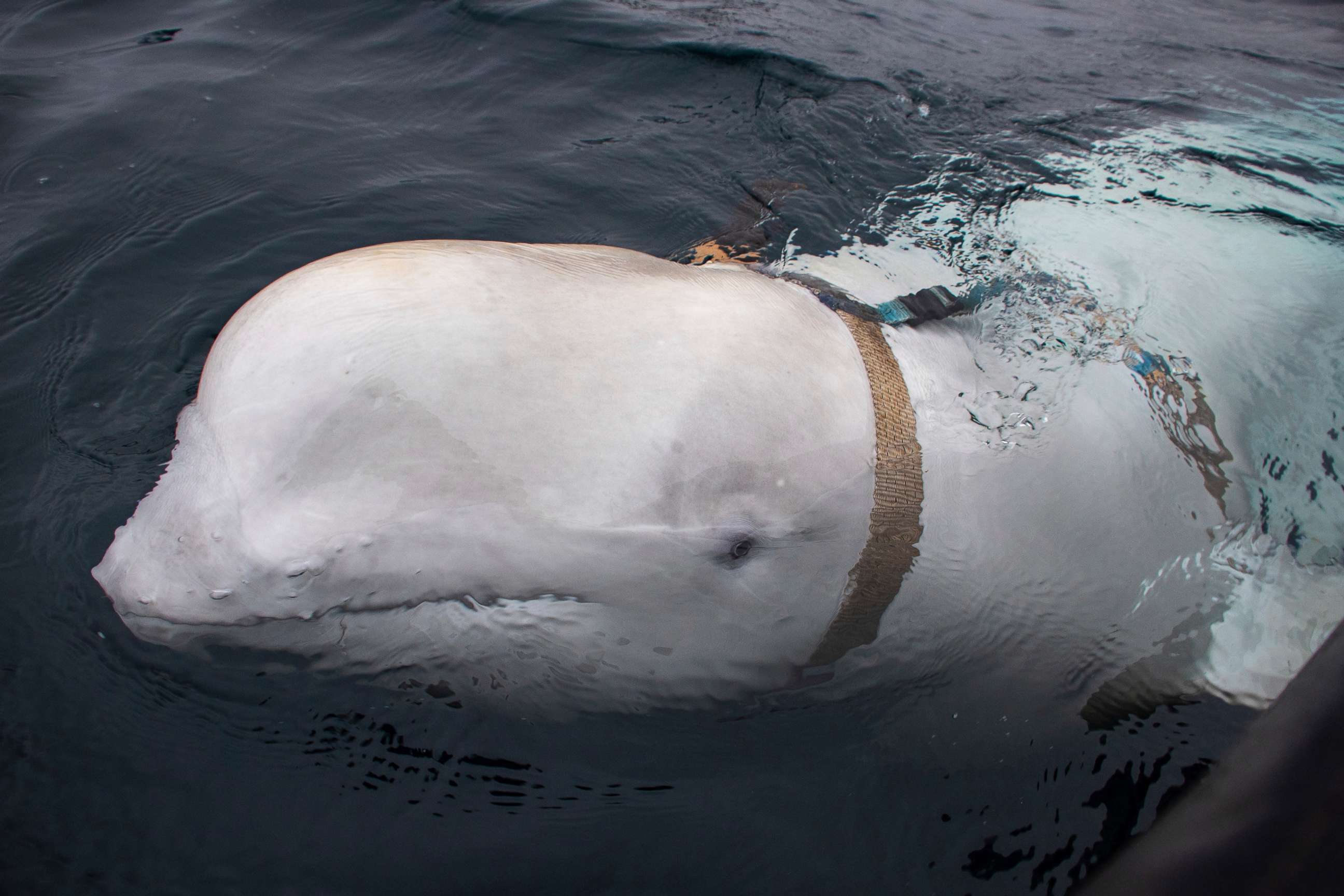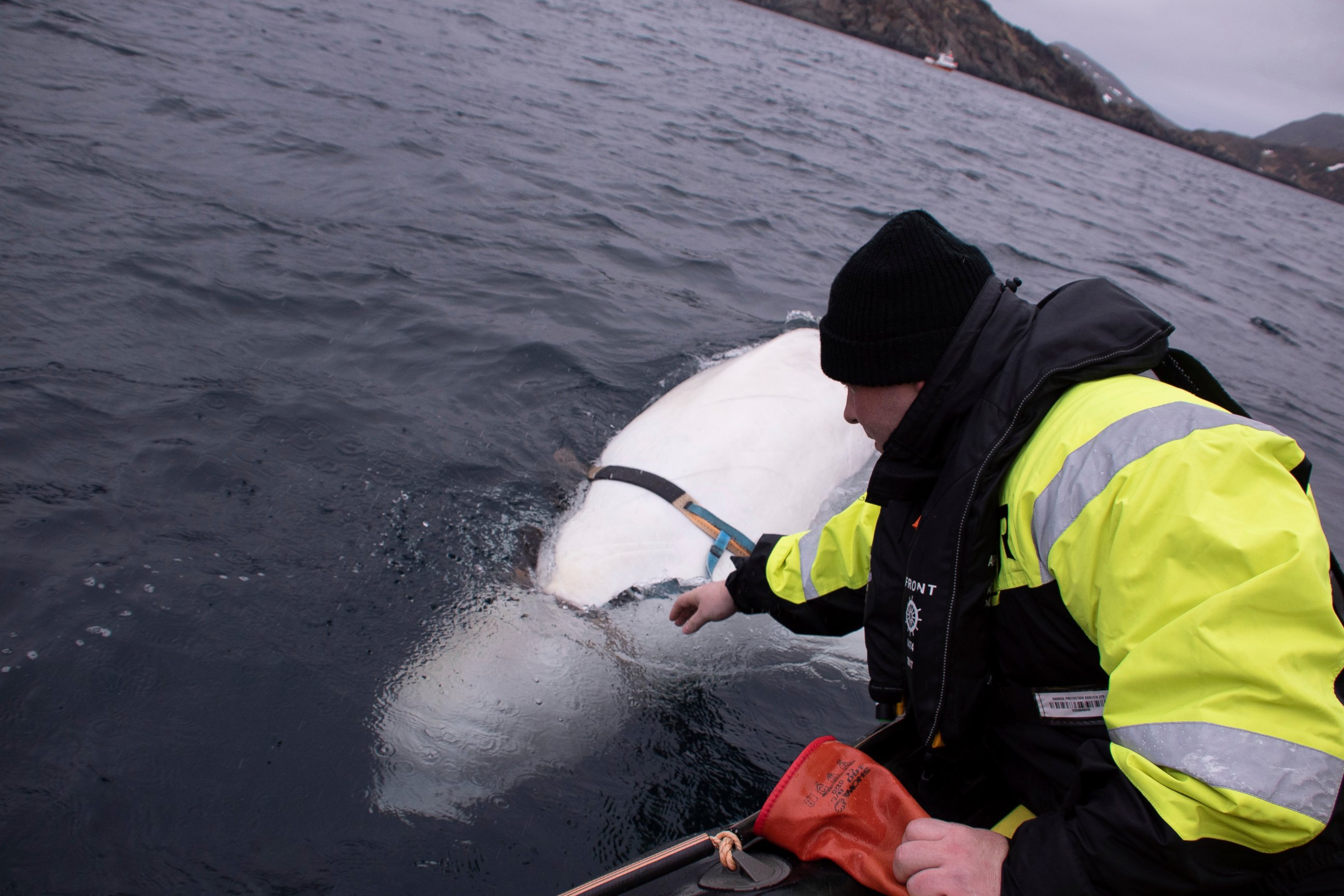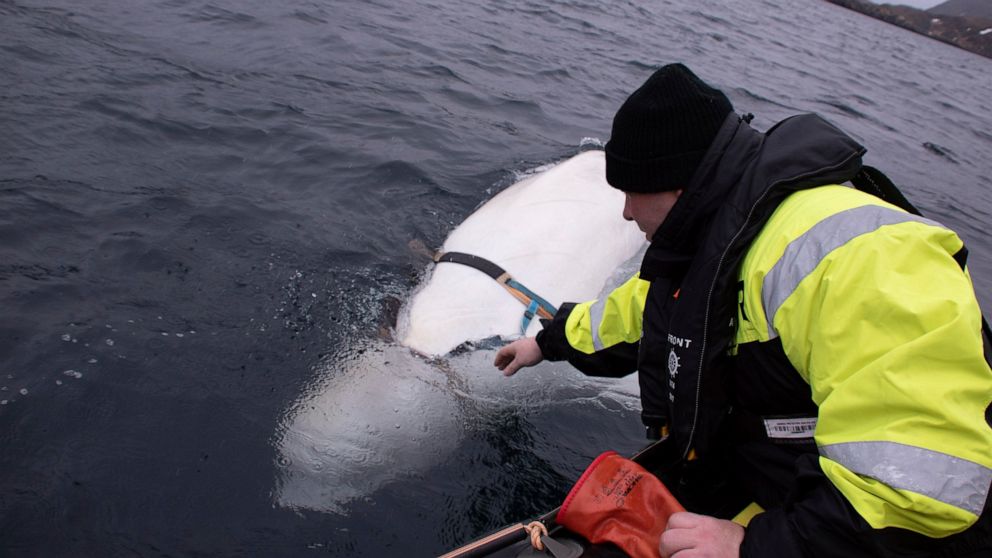Beluga whale with Russian harness appears to 'defect' to Norway
LONDON -- The mystery surrounding the beluga whale alleged to have come from a Russian military facility continues with the marine mammal refusing to leave Norwegian waters, leading to jokes the whale has "defected."
"The last days the whale has still been observed in the same area," marine biologist Jorgen Ree Wiig, an inspector for the Norwegian Directorate of Fisheries, said in a statement. "Hopefully it will swim away further north in the Arctic where it belongs and join a pod of white whales."
The whale caused a sensation earlier in the week when video emerged of it swimming alongside fishermen off the coast of Norway last month. The whale wore a harness with the words "Equipment St. Petersburg" on it, sparking speculation that it could have come from a Russian military facility.

Wiig, who was alerted by local fishermen after they found the whale with a "strange" harness, also described the dramatic moment when the fishermen jumped into the water to remove the harness.
"The whale got wild and dived deep and pulled the rope attached to the boat -- and suddenly -- it was free!" Wiig said. "First we thought that the rope had been ripped apart, but then we saw the most enjoyable thing in the water: The whale was free from the harness. It was a cheerful moment to see the whale going his own way, free from the harness."
However, Wiig told ABC News it is "unlikely" the beluga, a young adult male who is yet to be named, was militarily trained.
"Maybe [he] was trained to recover things people lose in the sea, as he is always looking for a boat to come close to," Wiig said. "We are in discussions with the Norwegian government about options for Beluga. He could just stay here, he could wait for other belugas when they make their summer migration through Norwegian waters and continue on with them [or] he could get transported to a whale sanctuary in Iceland."
"We are still thinking what the best option for his survival is," Wiig added.
The beluga has been foraging for food off the coast of Tromso, and is enjoying his interaction with humans, which is "atypical" for the species, according to Wiig. The whale has only moved 30 nautical miles since he was freed from his harness.
Speculation that the whale came from a Russian military facility continues to swirl. But Martin Biuw, of the Institute of Marine Research in Norway, clarified in an interview with ABC News earlier reports that he said the Russian Navy had "done this" to the whale.
"All I know is that both Russian and U.S. military have had active marine mammal programs in the past, but I have no detailed knowledge. I don’t see why they would equip those whales with harnesses," he told ABC News. "I would assume that harnesses are generally only used for short-term deployments, as they may cause chafing and other discomfort over longer time periods. What I can say for almost certain is that no researchers in Norway, and almost certainly not in Denmark/Greenland, use this method of attachment for any research-related work. Whether scientists in Russia do, I have no idea."


The case remains a mystery, but the whale’s behavior indicated it had been trained.
"I wouldn’t say the behavior is normal, even though whales from time to time are curious and friendly," Biuw noted. "One of the videos shows the whale bobbing its head out of the water and opening its mouth. This is a clear sign that the animal is trained, as this behavior is usually associated with begging for food from the trainer."
Little is known about Russia’s use of marine life for its military, although The Washington Post reported that the Defense Ministry in Russia advertised that it was looking to buy five Bottlenose dolphins for unknown purposes in 2016.




